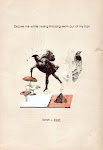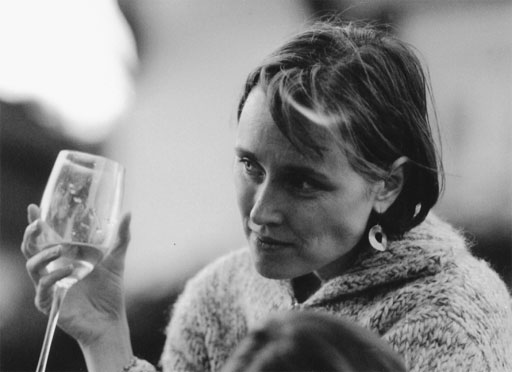I would have given up but Edith Wharton's The Age of Innocence is one of my father’s favorite books, so I stuck it out, hoping for an ironic twist or natural catastrophe or messy and embarrassing suicide.
But lacking intellectual pursuits, weird sexual inclinations and/or worthy and urgent causes, the idle rich are a dull lot, and the calamity of this book is that to the last page Newland Archer’s life goes on as tediously as ever.
About 30 pages in I wondered if the book would be concerned solely with the characters’ taste in clothes, their home decorating preferences and whether or not their chefs were any good. There was a bright spot about 3/4s through were Newland realizes he wishes his boring wife May were dead, and I was like, yeaaahh, poison her! That would have livened things up, but alas, murder is just not done.
So what did I learn from this book? I learned that in the late 1800s rich white people were like walking light bulbs. They did a lot of coloring, using the rush and ebb of blood to make their faces and necks light up to convey their feelings, or turn ashen to express discouragement, disappointment or calm. Barely a page goes by without someone’s face flushing, or going pale, or clouding over, or reddening fit to burst! This is obviously the way polite society used to express their emotions.
The height of this circulatory phenomenon is the exchange between Newland and M. Riviève, the French messenger. It’s practically acrobatic. First, Newland’s words “sent the blood rushing to his temples as if he had been caught by a bent-back branch in a thicket.” Then “he saw his blush more darkly reflected in M. Riviève’s sallow countenance.” At the same time, “M. Rivière paled to his normal hue: paler than that his complexion could hardly turn.” Then “Archer, reddening slightly, dropped to his chair,” and also “M. Rivière reddened, but his eyes did not falter,” just before “the young man’s color again rose.”
Of course these corporeal warmings and chills parallel similar imagery of embers and fireplaces, the sun and the weather, kindled hope and hope extinguished. Still, I did feel at times it was bit overdone.
Here are some other examples, from a list that could be five pages long:
Archer looked at her glowingly p. 21
Miss Archer blushed and tried to look audacious. P. 33.
The young man reddened. p.34
Newland reddened p. 35.
Newland Archer reddened and laughed. P. 53
She glowed with sympathy … a dusky blush rose to her cheek. p. 54.
He colored a little p. 62.
The light touched the russet rings of the dark hair ... and made her pale face paler. p. 63.
The Duke beamed on the group … Madame Olenska’s face grew brilliant with pleasure. p. 65.
Her face lit up. p. 68.
Janey paled and her eyes began to project. p. 71
Archer felt the blood in his temples. p. 77
Her face looked pale and extinguished, as if dimmed by the rich red of her dress p. 90
The blood rushed to his forehead. p. 94
To his surprise her color rose, reluctantly and duskily. p. 98
Her face clouded over … the blood rose to his temples. p. 110
... he felt the color rise to his cheek. p. 121
She flushed with joy and lifted her face. p. 126.
Archer burst into a laugh, and May echoed it, crimson to the eyes. p. 177
A sudden blush rose to young Mrs. Archer’s face. p. 215
“Augusta,” he said, turning pale and putting down his fork. p. 232
It was Mrs. Welland’s turn to grow pale. p. 233
Mr. Welland’s brow remained clouded. p. 233
... with an insistence so unlike her he felt the blood rising to his face … p. 234
... and her face, in contrast, was wan and almost faded. p. 243
She merely looked paler, with darker shadows in the folds and recesses of her obesity. p. 248
The young man heard her with veins aglow. p. 249
And now for something completely different: The Quickening Maze
And here's a list of 250 books by women "all men should read." I put it here mostly for my reference. I don't know why this is aimed at men, except it seems to be in response to a list from a men's magazine that irritated feminists. All fine by me, but I do wonder at the tit-for-tat (no innuendo intended), and think maybe readers independent of gender may appreciate the recommendations. In any case, it would be helpful if the list compilers made an attempt to justify it, rather than just saying who sent the name of the book in. Am I missing something?
Sunday, May 29, 2011
Subscribe to:
Post Comments (Atom)




2 comments:
The first real "literary criticism" I ever did was about "The Age of Innocence." In English class in Senior year of high school. Nothing spectacular (scenes on benches), but it worked.
And then I did something spectacular on "nothing" in "King Lear," which was so overwhelming but I managed to get the material organized to do a presentation on it. And the benches were definitely dwarfed by the nothingness.
I redden just reading this! No, really, I read Age of Innocence one time, too young, I guess, and thought, "What the heck?" (James affected me the same way, of course.) Then I saw the movie, and then I had to read the book again to figure out, yes, what the heck happened at the end. And the ending infuriated me, as I believe it was meant to.... Sigh. Then I realized Wharton wrote a bunch of ghost stories and home interior descriptions, so maybe she is attempting to link all her readers with blood.
Post a Comment